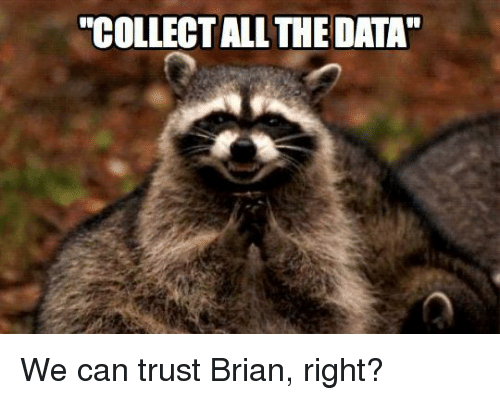Anyone who use the internet probably have lots of datas stored in your social medias or other accounts. There is an estimated of 2.5 quintillion bytes of data that is recorded, stored, processed and analysed, every day. How do we know if our data is safe? How do we know which organization is trustworthy and which is not? Data trust can help us to answer these questions.
Definition:
A data trust is a legal framework for managing shared data.
The data trust promotes collaboration among its members through
common rules for data security, privacy, and confidentiality.
It enables organizations to securely connect their data sources and
create a new shared repository of data.
The data trust promotes collaboration among its members through
common rules for data security, privacy, and confidentiality.
It enables organizations to securely connect their data sources and
create a new shared repository of data.
In more specific terms:
Data trusts are an approach to looking after and making decisions about data in a similar way that trusts have been used to look after and make decisions about other forms of asset in the past, such as land trusts that steward land on behalf of local communities.
They involve one party authorising another to make decisions about data on their behalf, for the benefit of a wider group of stakeholders.
With data trusts, the independent person, group or entity stewarding the data takes on a fiduciary duty. In law, a fiduciary duty is considered the highest level of obligation that one party can owe to another – a fiduciary duty in this context involves stewarding data with impartiality, prudence, transparency and undivided loyalty.
They involve one party authorising another to make decisions about data on their behalf, for the benefit of a wider group of stakeholders.
With data trusts, the independent person, group or entity stewarding the data takes on a fiduciary duty. In law, a fiduciary duty is considered the highest level of obligation that one party can owe to another – a fiduciary duty in this context involves stewarding data with impartiality, prudence, transparency and undivided loyalty.
Applications:
Although data trusts are a fairly new concept and a global community-of-practice is still growing around them, there are some existing examples of independent, fiduciary stewardship of data in the wild. For example, UK Biobank was set up in 2006 to steward genetic data and samples from 0.5m people and takes the form of a charitable company with trustees. In more recent years, ex-ODI startup OpenCorporates has established a separate entity with independent trustees to help safeguard the organisation’s mission, and Facebook has experimented with using a non-charitable trust to create an external board to make decisions on the removal of content uploaded to its platform.
Sources:
https://theodi.org/article/what-is-a-data-trust/
https://www.qlarion.com/insights/what-is-a-data-trust/
https://theodi.org/article/what-is-a-data-trust/
https://www.qlarion.com/insights/what-is-a-data-trust/

